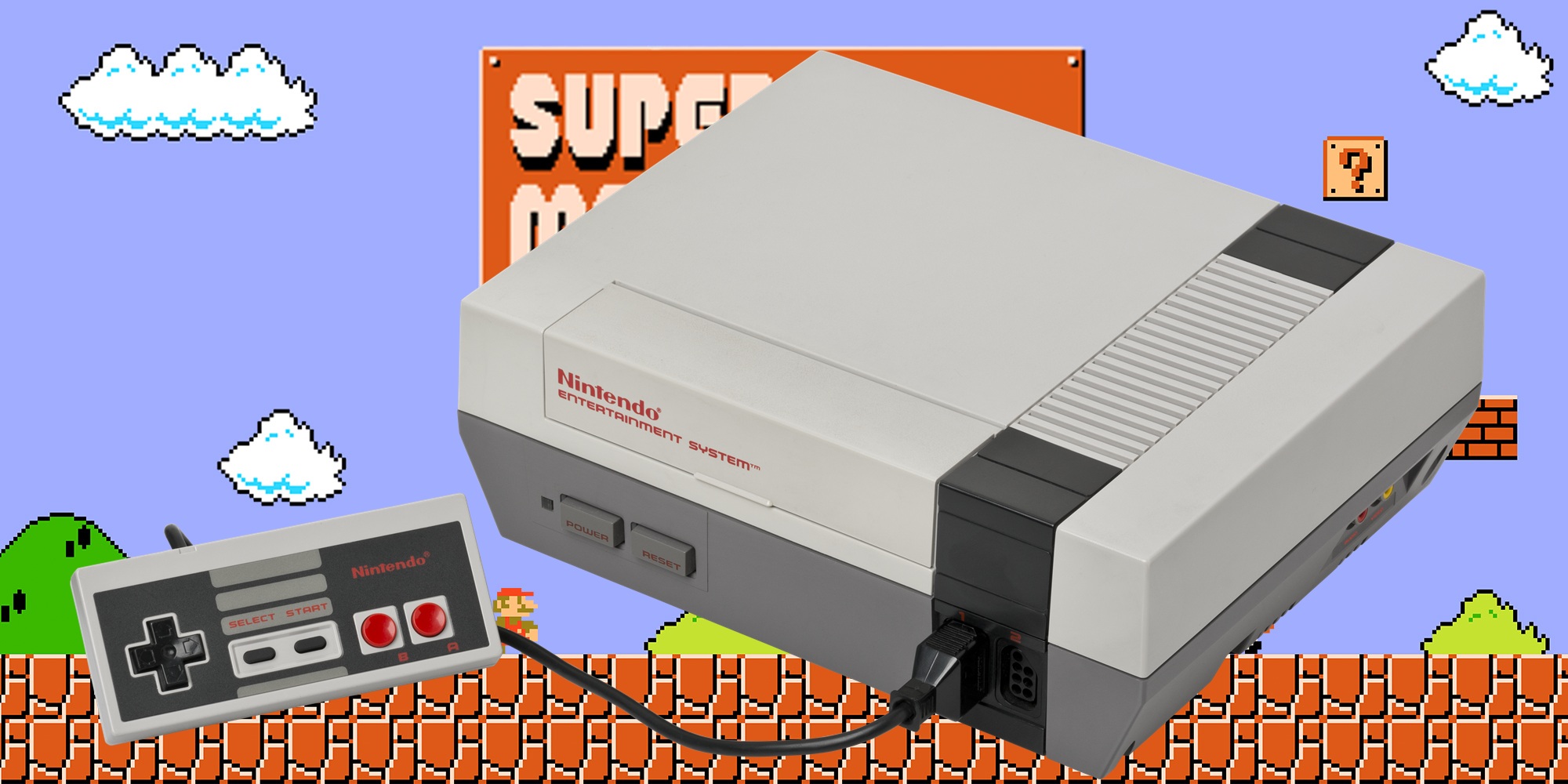
The Console That Saved—and Controlled—Video Games. An Interview with VGHF Founder Frank Cifaldi
The Nintendo Entertainment System, or NES for short, has turned 40. Launching in the United States at a time when the industry was still dealing with the consequences of the huge Video Game Crash of 1983, the first Nintendo home system to launch in the West not only revitalized a dying market but propelled it to new heights, setting some of the standards that are still very much in place to this day.
To celebrate the system’s 40th anniversary, we had a chat with Frank Cifaldi, Founder and Director of the Video Game History Foundation. Backed by the foundation’s efforts to preserve gaming history, Frank provided unique, research-backed insights into the console’s success, the magic it created, its critical 1985 unveiling at CES, and its lasting legacy.
The interview was conducted with a written email Q&A, and lightly edited for publication
1. This year marks the 40th anniversary of the Nintendo Entertainment System, a console that arguably reshaped the entire video game industry. In your view, what were the key factors that made the NES such a success in the U.S and Japan?
The late 80s and early 90s “Nintendomania” that swept the U.S. – the dominant video game market of the time – can really be boiled down to two things: Nintendo made a great product, and they were in the right place at the right time. Following the home console industry crash, there was a good year or two where there just weren’t any exciting news products coming out. Nintendo, which had already released the Famicom in Japan over two years prior, came out swinging with some very high quality games, chief among them Super Mario Bros. The quality (and quantity!) of the games along with Mario’s instant star appeal ensured that when competitors Atari and Sega entered the market, they were left in the dust.
2. For many people, the NES is a magical system, evoking feelings of wonderment that few other gaming systems do. From your research and interviews, what do you think gave the system this sense of wonder? Was it the games, the marketing, or something less tangible?
If you weren’t there, I think it’s hard to understand just how dominant Nintendo was to children and teens of its era. The word “Nintendo” was synonymous with “video game” for a while there, and classic NES franchises like Super Mario Bros, Metroid, and Zelda were all introduced within the span of a year or two. Factor in all of the merchandising and even the television shows, and you’ve basically got nostalgia soup.
3. Your recent work has focused on the only surviving press kit for the NES’s unveiling at the 1985 CES. What makes this specific artifact so historically important, and what does it reveal about Nintendo’s strategy for presenting the NES to skeptical American retailers during the height of the Video Game Crash?
The AVS represents such an interesting “what if” that historians like myself can’t resist it. What if Nintendo had gone a more educational and high tech route than the more “gamey” NES? Would it have worked? And if it has failed, would something else have taken its place in our hearts and memories? Seeing the AVS is like peering into another timeline.
4. Following the Video Game Crash, the NES’s success in the U.S. was anything but guaranteed. How close do you think Nintendo came to a catastrophic failure before the system found its footing, and what was the single biggest contingency that saved the launch?
Nintendo’s take on the video game industry crash of the 80s was that Atari failed in two ways: first, they didn’t prevent other companies from flooding the market with “unofficial” games of variable quality, and second, even the official games sold by Atari were often considered low quality, at least by Nintendo’s standards. The launch of the NES was hyper focused on product quality and customer satisfaction, and while you could point at other factors, I believe this is the main reason they succeeded.
5. Your recent research also covers Atari’s near-acquisition of Nintendo before the NES launch. Why did that landmark deal ultimately collapse, and if it had succeeded, would we have seen the immediate recovery of the industry, or simply the collapse of a combined entity?
We don’t know why the Atari deal fell through, we simply don’t have enough of a historical record. I also can’t speculate on what would have happened if it had gone through – sorry, I’m a researcher and a historian! I don’t do “make believe” very well.
6. The NES legendary status among players is undeniable, as is its impact on the video game industry as a whole. From the iconic controller to how Nintendo managed its relations with third-party developers, which of the console’s features has changed the industry so much that its influence can still be clearly felt today?
The existence of the “lock-out chip” inside of the NES is really the first time serious effort was put into preventing unofficial games from being sold on a video game system, and we have never looked back. This, to me, is the legacy of the NES, for better or worse. Video game consoles could have been like computers, where anyone can write and self-publish games without having to pay a share to the console maker, but the NES took technical, legal, and straight-up manipulative tactics to make sure this didn’t happen, and video game consoles have been this way ever since. It’s probably what saved the industry, even if it might have stifled some creative freedoms. Luckily we’ve swung back around, and it’s easy to self-publish a game these days and find an audience, but for a long time you couldn’t make a living making console games without giving the hardware maker a cut.
7. The Video Game History Foundation has done incredible work preserving game prototypes, ads, and behind-the-scenes materials. What’s the biggest challenge today in preserving artifacts from the NES era before they’re lost to time?
Thank you, as we are incredibly passionate about the need for game preservation for future generations. The biggest preservation challenge we face when preserving material this old is human mortality, with a close second being the cost of real estate. The former, I hope, is self-explanatory, but the latter is based on how often we’ve heard people respond, “oh, I wish you’d contacted me last year, I had boxes of stuff that I threw out when we moved.” We want people to know that we are here, so if there are any artifacts they want to know about, or donate, the VGHF would greatly appreciate the support.
8. Looking at the modern retro and preservation scene—from mini consoles to fan restorations—do you feel the industry is doing enough to preserve not only the NES legacy, but also that of other gaming systems and their games?
“Preservation” and “commercial availability” are two separate concepts. I don’t feel that preservation is the duty of the commercial industry, that’s our jobs as archivists. There is no possible future in which for-profit companies allow access to material that would cause them to lose money, which is frankly the majority of video game history, so we are working towards a future where libraries and archives can offer access to material without having to butt heads with political opposition funded by the industry that prevents us from doing our jobs.
9. Considering how many games released on the NES, opinions vary on which titles defined the system. In your opinion, which first-party and third-party games contributed to this legendary status the most?
Based on sales numbers I can tell you as an objective fact that the three Super Mario Bros games sold more than any others. The fact that they’re all still sold today, and remixed in products like Super Mario Maker, all but confirms that these are the titles that defined the system. Outside of that, it’s really interesting to note how popular games based on entertainment franchises were. The Teenage Mutant Ninja Turtles and Top Gun games sold significantly more units than most titles for the system.
10. Finally, as someone who’s both a historian and a lifelong Nintendo fan, what does the NES personally mean to you, forty years later?
The NES dropped in 1985 and defined what a home video game was, and I don’t think it’s changed much since then. Before the NES, video games were a fad. After the NES, they were an industry.
Thanks for your time!
Dear NES, happy 40th birthday! May you celebrate a thousand more!
Follow Wccftech on Google or add us as a preferred source, to get our news coverage and reviews in your feeds.
First Appeared on
Source link








